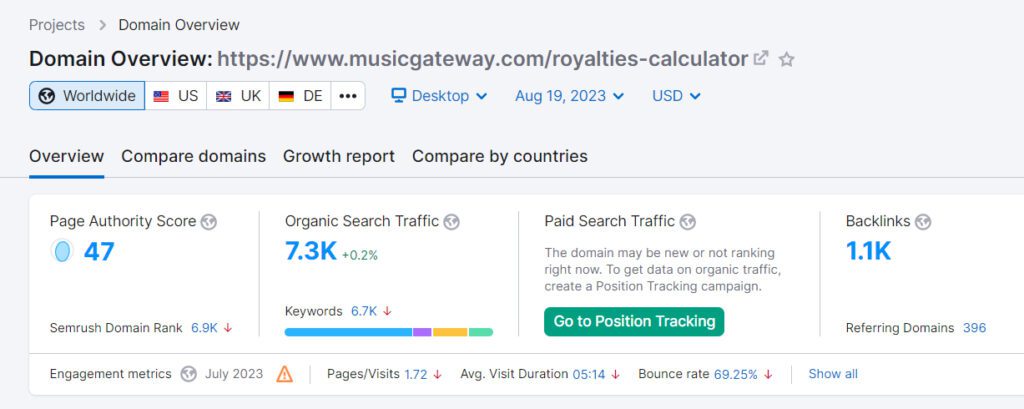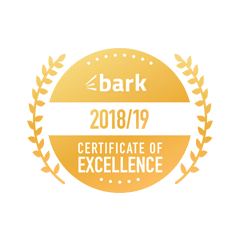
The Fintech SEO Playbook: How to Outrank Your Competitors
Over the years, we’ve witnessed the transformative power of fintech in revolutionizing the financial sector.
But here’s the catch – having a groundbreaking fintech solution isn’t enough if your potential customers can’t find you online.
Enter the realm of SEO & Content Digital Marketing.
At Ality, we firmly believe that a robust SEO strategy can be the linchpin of success for fintech firms in this crowded digital landscape. But how do you rise above the noise and truly stand out? How do you ensure that when someone types in a query related to your service, it’s your name they see at the top of that search list?
Dive in with me as we unfold the chapters of our ‘Fintech SEO Playbook’, offering a treasure trove of insights, strategies, and actionable steps to help you outrank your competitors and make your mark in the fintech world.
First, let’s briefly provide an overview of the rise of fintech.
One of the important aspects of SEO in the digital fintech landscape is having a clear understanding of the Fintech SEO Challenges.
Regulatory Challenges and Compliance in Fintech SEO
As fintech companies burgeon across the digital landscape, they’re not just contending with the usual SEO challenges. Due to the very nature of their industry — handling money, investments, and personal financial data — they’re deeply enmeshed in a web of regulations. These regulations are crucial for ensuring consumer protection, maintaining trust, and preventing financial malfeasance.
But how do regulatory challenges and compliance intersect with SEO for fintech firms?
Content Authenticity and Accuracy
When discussing financial products, services, or advice, the information must be 100% accurate and compliant with regulatory standards. Misleading or inaccurate information can lead not only to SEO penalties but also hefty legal ramifications.
Transparency and Disclosures
Search engines value transparency. Fintech firms often need to include disclosures or disclaimers in their content, especially when discussing financial outcomes or promoting certain products. Properly integrated, these disclosures don’t hurt SEO and can, in fact, bolster trustworthiness in the eyes of both users and search engines.
Data Protection and Security
While not directly an SEO factor, robust data protection practices are essential for fintech. If a company suffers a data breach, the resultant negative publicity can harm its online reputation. Moreover, search engines may downgrade sites that aren’t secure (i.e., those not using HTTPS), impacting SEO.
Local Regulations and Geo-targeting
Fintechs operating in multiple countries must be acutely aware of local financial regulations. When crafting content, it’s essential to ensure it complies with regional laws, especially when targeting users through local SEO strategies.
Adherence to Advertising Standards
Paid search or display ads, which often complement organic SEO strategies, must adhere to advertising standards specific to the financial industry. Platforms like Google have stringent rules for financial ads, ensuring that they’re transparent and not misleading.
So with the above in mind, let’s dive into our Playbook and outline key SEO strategies that will get your brand authority growing, alongside traffic to your website landing pages.

Keyword Research for Fintech
– Importance of specific fintech terminologies
– Tools to use for fintech keyword research
– Identifying high-intent keywords in finance
So how do you go about conducting your research? Well, you have three options, you can bring onboard and recruit an in-house SEO expert, or if you have time, you can learn it yourself and go DIY (I did this myself and it’s very rewarding but takes a lot of time) or you can work in partnership with a reputable SEO agency that knows how to work across the Fintech industry.
Long tail keywords, whilst can be low in volume can be the most beneficial for any given target audience. Google wants to present the most valuable and relevant content in the organic search results as it possibly can, also the search intent is an important consideration (buyer intent, informational, transactional types of content).
If you want to go down the DIY route, then continue reading as I will provide more practical insights and how-to guides including what software to use to do which tasks.
On-Page SEO Techniques for Fintech Websites
– Creating authoritative content on financial topics
– Technical SEO aspects: site speed, mobile optimisation, and SSL
– Meta tags, header tags, and schema markup specific to fintech
These all require specialist knowledge, for example in respect of page speed you can use Google’s Page Speed Checker which is totally free and for technical issues you need to set up Google Search Console, which is also free.
In respect of meta tags, header tags and schema markup this isn’t as straightforward to outline, so I would recommend for DIY SEO I would get on a basic course or use a consultancy like us.

Content Strategy for Building Trust
– The importance of educational and informative content
– Utilizing case studies, testimonials, and whitepapers
– Blog topics that resonate with the fintech audience
This is absolutely essential to building your brand and domain authority in Google’s eyes and you do this through a multitude of ways, one being foundation content in the Fintech world. Being a knowledge base for all things Fintech is the starting point, but the whole strategy is formulated by the comprehensive research you must understand before you put any pen to paper.
Case studies & testimonials go without saying, but so often we come across companies that just don’t put any priority or time into producing these trust-building pieces of content.
Link Building in the Fintech Sector
– The importance of backlinks from authoritative financial sources
– Techniques: guest posts on financial blogs, partnerships, and collaborations
– Fintech SEO Strategies to avoid: black-hat techniques and non-relevant link acquisitions
How to build backlinks safely, well it’s very much like what Bruce Lee said on the boat to an opponent in the film, Enter The Dragon, but instead of the phrase “It’s the art of fighting without fighting”, its “The art of link building without link building”, let me explain.
Google doesn’t want you to build links, it’s against their practices, but a lot of businesses do it and take the risk of being given a Google Penalty, which isn’t cool on any level.
Before I give you the tactic, it’s important to understand that backlinks are simply authority URL links back from another website pointing to a specific landing page on your own website. A “Do Follow” link passes on SEO juice (my word for it) to your website, telling Google it’s relative and important. The higher the page authority or domain authority of the website linking back to you, the more SEO power it transfers.
It’s all about quality, not quantity when it comes to backlinks.
“So, what’s the art of backlinking without backlinking?”
Creating amazing content and helpful tools (link assets) that your readers with share and other websites will reference.
Here’s an example, Music Gateway, one of our clients created a free Royalty Calculator tool for their audience of musicians to quickly calculate the estimated royalties their can earn from streamed music on DSPs such as Spotify, Apple Music, Deezer & YouTube.
 This tool has been shared 2,426 times from the page, but more importantly, this is how the back performers with keywords and backlinks.
This tool has been shared 2,426 times from the page, but more importantly, this is how the back performers with keywords and backlinks.
The page ranks for more than 3,000 keywords and has over 1,100 backlinks from over 946 external websites. The traffic it generates a month is over 7,000, which in the USA is a PPC equivalent to over $4,400 per month if you had to pay Google Adwords.
This is just one example of many tools that can help you grow your backlink profile.
 Another killer strategy is good old-fashioned PR. But, we are talking about high-quality PR and we would recommend working with a proven PR Agency that’s worked in the Fintech niche, we can help you find the right partner to work with, happy to discuss.
Another killer strategy is good old-fashioned PR. But, we are talking about high-quality PR and we would recommend working with a proven PR Agency that’s worked in the Fintech niche, we can help you find the right partner to work with, happy to discuss.
Why is PR good for backlinks? Well, again, a good PR company will create great content for you and pitch it for coverage within major online news websites and industry websites, like the Guardian, Huffington Post or the New York Times. As I mentioned earlier, it’s all about quality, not quantity and the number of referring domains is also a big factor, EG the more referring domains you have the better, as opposed to 1,000 links from one domain, fact, that would look SPAMMY in Google’s eyes and obviously not recommended.
Managing your backlink profile is also important, once you start to rank, again a whole other topic, but any good SEO agent will know this and ensure it’s part of their service for you.
The Role of User Experience (UX) in SEO
– Site architecture and navigation
– Mobile responsiveness and its importance in fintech
– Ensuring fast loading times and security for user trust
As a Fintech business, you should have this covered in-house, but it’s always good to have a keen eye and review undertaken from a third party, outside the business that can highlight improvements and also focus on user acquisition, conversion and any lead generation tactics. This is something we can help you with if needed.
Monitoring and Adapting: SEO Analytics
– Tools to monitor a fintech website’s SEO performance
– Key metrics to watch: organic traffic, keyword rankings, and conversion rates
– Adapting your strategy based on analytics insights
How can you measure success and ROI if you can’t monitor your performance? There is a fantastic tool I will share with you later on in this article that does all the heavy lifting for you, but obviously, it takes time to learn best practices and review the results and convert them into tangible action points and revised tactics.
Staying Updated: SEO Trends for Fintech
– Voice search optimisation for financial queries
– The rise of AI and machine learning in SEO
– Importance of video and multimedia content in fintech marketing strategy
These are all topics to explore and research separately, Google Trends is a fantastic tool to keep on top of your industry and create content around your industry, having a voice and option is key.

Wrap-Up & Resources
Here is a list of useful SEO tools for fintech.
We use SEMRUSH ourselves, but the other market leader is Arhefs, but I know from experience SEMRUSH will allow you to cover all the essential topics below.
– Keyword research
– Competitive analysis (you can also check SimilarWeb for this)
– Organic traffic measurement and analytics
– On-Page SEO (search engine optimisation) ideas and checker
– Keyword GAP analysis (which tool is amazing)
I think there are over 55 separate tools on SEM that cover pretty much everything you need to do SEO but bear in mind, it takes quite a while to understand how to use it and more importantly what to do with the information once you have it.
I guess that’s where we come in as a proven Fintech SEO Agency with years of experience in SEO and Content Marketing, let us help you focus on the operations of the business, whilst we grow your organic traffic and client base.















